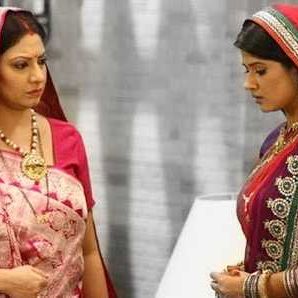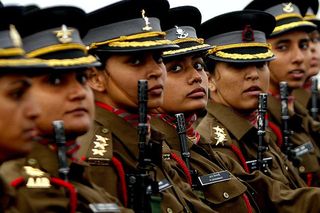
Centre to SC: Women Can’t Hold Army Command Posts Because Men Won’t Listen to Them
Plus, the “challenges of confinement, motherhood and childcare” would just be really difficult for the Army to deal with, Centre advocates tell the Supreme Court.

Women should continue to be barred from serving as commanders within the Indian Army because men in the rank-and-file wouldn’t accept their authority, advocates for the Centre government argued before the Supreme Court on Wednesday.
Currently, women are not allowed to hold combat roles in the Army. They are allowed to be officers, but are not allowed to be commanding officers. Women in the Army are limited to short-service commissions (as of April 2020, women in the Army will be allowed permanent commissions). Combat experience, command experience, and permanent commissions are seen as essential to cracking the top ranks of Army leadership; lack of access to them leaves women soldiers unable to make an equitable career within the military branch.
“The composition of the rank-and-file being male, and predominantly drawn from rural background, with prevailing societal norms, the troops are not yet mentally schooled to accept women officers in command,” Times of India reports senior advocate R. Balasubramanian and lawyer Neela Gokhale as saying on behalf of the government.
In response, advocates Meenakshi Lekhi and Aishwarya Bhatt, cornered into the trap of having to prove women’s exceptionalism just to access equality, fired back with examples of women officers who acted bravely amid conflict situations.
There are many examples — the advocates specifically cited Flight Controller Minty Agarwal, of the Indian Air Force, and the Army’s Lieutenant Colonel Mitali Madhumita. Unfortunately, none of them matter. No amount of proof of women’s extraordinary capabilities and service will help them access command opportunities as long as the Centre argues the bar relies not on women’s performance, but on the (un)readiness of men. (One would think force unreadiness would be an embarrassment to an army — something to be corrected — but apparently not.)
Related on The Swaddle:
LGTBQ+ Jawans Are Already in the Army; Welcoming Them Would Make the Ranks Stronger
A stronger argument in response to the Centre’s would be to cite examples of men working just fine and respectfully under the leadership of women. Unfortunately, as long as the government trots out tired, dated arguments to stymie progress, those examples will conveniently never be allowed to manifest.
It was almost as if advocates for the Centre knew the ridiculousness of their argument because they tried to back it up with others — essentially flinging at the Court everything-and-the-kitchen-sink of reasoning against opening up command posts to women. Unfortunately, all of the additional arguments were just as absurdly backward: women have different physiology than men (… point?); women shouldn’t be exposed to combat (too late); women come with the “challenges of confinement, motherhood, and childcare,” (apparently no male commander in the army is burdened by parenthood) which is just too difficult for the Army to deal with.
Then, of course, came concern for the families of potential women commanders: children’s education/development and spouses’ careers would be disrupted. The Centre’s advocates did not explain why the children of male commanders and the careers of their spouses warrant no such concern.
Finally, the Centre advocates argued commanders are expected to lead from the front, where it’s too dangerous for women to serve. But then shot that argument in the foot (oh, the irony) by admitting that the nature of battle has changed so that the rear — where it’s okay for women to serve! — is as vulnerable as the front lines.
Which exposes the Centre’s stance for the sexist obstruction to equality that it is, one with little merit and one that other countries have successfully and easily overcome. Yes, it’s dangerous at the front and in the rear — but apparently to the Centre, nothing is as dangerous as women in power.
Liesl Goecker is The Swaddle's managing editor.
Related


Anti‑NRC‑CAA Protest Is Changing What Pride Looks Like
